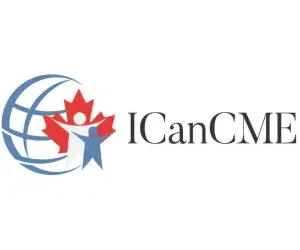A national research network targeting the multi-facets of myalgic encephalomyelitis (ME) to improve the health of Canadians
What is ICanCME?
The Interdisciplinary Canadian Collaborative Myalgic Encephalomyelitis (ICanCME) Research Network is a national research network of researchers, clinicians, and patient partners working to advance the understanding of ME and its biomedical research.
The ICanCME Research Network was established in September 2019 through a Catalyst Network grant funded by the Institute of Musculoskeletal Health and Arthritis (IMHA) of the Canadian Institutes of Health Research (CIHR).
Governed by a Community Leadership Team and an International Scientific and Medical Advisory Board, our mission is to be the primary resource for initiating, supporting and sustaining innovative and collaborative ME research designed to benefit the health of all Canadians living with ME and those at risk of developing ME.
Network membership is free to those interested, and members are individuals actively involved in the ME community and interested in contributing towards the creation of new scientific knowledge and closing the gap between knowledge and practice.


What is ME?
Myalgic encephalomyelitis (ME), formerly known as chronic fatigue syndrome (CFS) and often still referred to as ME/CFS, is a devastating, chronic, complex, multi-system illness. ME occurs in children, adolescents and adults of all ages and backgrounds.
There is a growing recognition that ME is a serious disabling disease rooted in dysfunctions that impair energy production, the immune system, the nervous system and more.
We are here to provide support, bring the ME community together and share vital research to empower those who are afflicted with this disease.
Member Spotlight
Join Our Network
ICANCME NETWORK
Are you, a friend, or a member of your family affected by ME? Become a member of our network.
NEWSLETTER
The ICanCME Research Network provides a monthly newsletter via social media and e-mail, with regular updates throughout the month on various topics relevant to ME.
News
ICanCME is Renewed!
ICanCME Research Network Secures Continued Funding for the Next 5 Years
October 18th, 2024 (Montreal, Quebec) – Today, the ICanCME Research Network announced continued funding for the next five years to support Canadian research into Myalgic Encephalomyelitis (ME), through a $2 million catalyst network grant from the Canadian Institutes of Health Research Institute of Musculoskeletal Health and Arthritis (CIHR-IMHA).
The Outdated Treatment of ME Patients is a National Scandal
It’s the greatest medical scandal of the 21st century. For decades, patients with ME/CFS (myalgic encephalomyelitis/chronic fatigue syndrome) have been told they can make themselves better by changing their attitudes. This devastating condition, which afflicts about 250,000 people in the UK, was psychologised by many doctors and scientists, adding to the burden of a terrible physiological illness.
Learning to treat long COVID could help those struggling with myalgic encephalomyelitis/chronic fatigue syndrome, too.
Some specialists say the current crisis of long COVID is related to the neglect of similar chronic illnesses, like ME/CFS.
Long COVID Is Being Erased—Again.
Like other similar, neglected chronic illnesses, it defies a simplistic model of infectious disease in which a pathogen causes a predictable set of easily defined symptoms that alleviate when the bug is destroyed. It challenges our belief in our institutions, because truly contending with what long-haulers go through means acknowledging how poorly the health-care system treats chronically ill patients, how inaccessible social support is to them, and how many callous indignities they suffer at the hands of even those closest to them.


